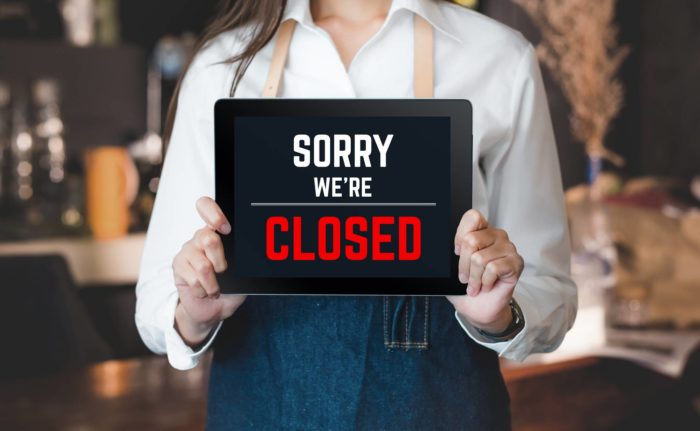Top Class Actions’s website and social media posts use affiliate links. If you make a purchase using such links, we may receive a commission, but it will not result in any additional charges to you. Please review our Affiliate Link Disclosure for more information.
The ongoing coronavirus pandemic has changed a lot of things for people all over the globe, affecting people’s health and safety, jobs, relationships and daily life. Companies, too, have been hit hard by the challenges presented during the COVID-19 lockdown, with no way to generate the amount of revenue they need to pay their employees or rent or maintain inventory.
Business interruption policies can generally pay up to £100,000 for the cost of keeping a company going due to a forced shutdown.
But many businesses that have filed claims for business interruption insurance have found that their insurance companies are refusing to pay out on these claims. In some cases, their policies did not cover pandemic-related shutdowns, but issues like floods or fires. Others allegedly did include diseases in their policies, yet insurers are now refusing to pay out these claims, according to The Guardian.
Insurers that failed to pay out on these business interruption claims may be facing significant group litigation.
Collective litigation is not often seen in the UK since there are far more procedural constraints on the process than in the United States. In the UK, collective actions require that claimants individually opt-in, and they are also required to share the legal costs.
But in these unusual circumstances, where a vast quantity of businesses are facing financial ruin due to the ongoing coronavirus lockdown, there is a case for these businesses to join together in litigation.
Collective litigation over business interruption has already begun. Approximately 500 companies from two groups, the Night Time Industries Association (NTIA) and the Hiscox Action Group, have already come together to pursue litigation against the insurance company Hiscox. Together, the policyholders in these groups have insurance cover amounting to more than £50 million, The Guardian reported.
The groups allege Hiscox’s business interruption policies, sold to companies prior to the pandemic, included a payout if a business was forced to shut down because of a notifiable disease.
But when the businesses tried to file their claims, they were told their business interruption policies did not, in fact, cover the pandemic-induced closures.
“We understand these are incredibly difficult times for businesses and we are paying claims that are covered by the policies we issue fairly and quickly,” Hiscox said in a statement. “We review every case individually, and if any customer has concerns about the application of their policy, we encourage them to get in touch with us directly.”

Hiscox maintains that larger companies may be compensated for specific event-cancellation issues, but small companies are not covered for pandemics.
“However, general business interruption policies across the industry, including Hiscox’s, were not designed to cover these extraordinary circumstances. Like terrorism and flood, which have government-backed insurance schemes, pandemics like coronavirus are simply too large and too systemic for private insurers to cover,” the insurer said.
According to investment bank UBS, approximately 50 percent of policies outside the U.S. mention infectious disease in the wording. In the U.S., only about 10 percent of policies mention infectious disease.
The business interruption issue is especially pressing for many small businesses who fear that they may well be out of business before the litigation is resolved.
Ultimately, the liability will be contingent upon what the Hiscox policies actually state, rather than what the insurer intended it to say.
The Financial Conduct Authority may have found a way to make this litigation move much more smoothly and quickly: by stepping in to lead the action itself. The FCA, the U.K.’s financial regulator, has written to several major U.K. insurers to ask for clarification on the wording of their policies, with a deadline of May 15, after which it will begin an action at London’s High Court.
















One thought on UK Insurers Are Likely to Face Coronavirus-Related Collective Action
This article is awesome!